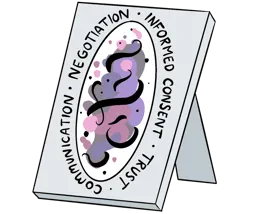Enrol in an online course today for flexible, self-paced learning—no fixed schedule required. Plus, enjoy lifetime access to course materials for convenient revisiting.
Betrayal Trauma: Helping Couples Rebuild Connection

Couples who have worked through infidelity and tried to recover can have a difficult time moving forward. They can get stuck in the betrayal trauma of an affair. Betrayal trauma is when feelings and the story of the wound leave ongoing symptoms of trauma in one or both partners. These symptoms can include intrusive thoughts, bad dreams, somatic rigidity, pleasure denial, rejection of intimacy, guardedness, isolation for protection, and other fight, flight, freeze and fawn or faint behaviours.
The unique dynamics of post infidelity relationship may show symptoms that persist unless and until the couple can work through the three stages of recovery – the crisis, the integration and the vision stages. Until then, the trauma tends to keep the relationship stuck in its betrayal narrative, leaving the couple bound in their struggle to find trust and to move on to a better future.
In the crisis phase, or the acute phase, the discovery or disclosure of an affair means that sudden or acute emotions can flair up and activate feelings that may persist into extended or enduring emotions, or can give us information about past traumas and partner selection. We can focus in this phase on settling each partner’s nervous system and taking a systemic approach to assessment and evaluating risk to the family and to the couple.
The integration phase of treatment is the deepest phase of therapy, where the narrative of the infidelity is explored and understood. With each new insight there can be a shift and new wiring happens as the story shifts from what happened to why it happened. The goal is not forgiveness here, but rather empathy.
Affairs are pathologised and we tend to, even in therapeutic research, look toward the treatment of the ‘victim’ instead of looking at who the person becomes when they are with the other. Yet much can be learned if we instead see the addition of the ‘third’ in a relationship as a tool for expansion and learning. Most people don’t look for someone else they look to be someone else. We become a different part of ourselves when we are with someone else, and this person becomes a mirror of a part of ourselves that can teach us much about who we are.
Therapy can help increase this insight and integrate this information into the primary identity and the primary relationship. This can be a step in the integration stage of healing that can move the relationship(s) forward instead of getting stuck in the victim/perpetrator/rescuer triangulation.
In the third phase of recovery, the vision phase, the couple has decided they will stay together and honour their new relationship agreement. In this phase of recovery the creation of a new vision of their relationship includes openly communicating about what their future should include at this phase of their lives. This work includes creating a new monogamy agreement.
If the couple is going to stay together, they are going to have a new monogamy, a new relationship, together. They can’t ever go back to the way it was. They have to create a new paradigm for monogamy, making everything they long for a ‘talk about-able’ thing. Making an explicit monogamy agreement is like renewing vows only without following a standard pre-determined text. More details about how to create this agreement can be found in my books The New Monogamy or Open Monogamy).
We are changing as a culture, in our attitudes around monogamy, commitment, attachment and trauma. Monogamy is no longer defined by morality but by transparency. Honesty is the new generation of couples’ way of staying true to their promises around relationship, and they seem more able to ride the changes that happen developmentally as they grow and as their relationship grows.
An affair can be a catalyst for change. It can warn couples that their current relationship is unstable and it can create the chaos that is necessary for shifts in awareness. But ultimately, recovering from infidelity, and choosing to stay together, means the couple needs to look at new ways of maintaining connection.


















